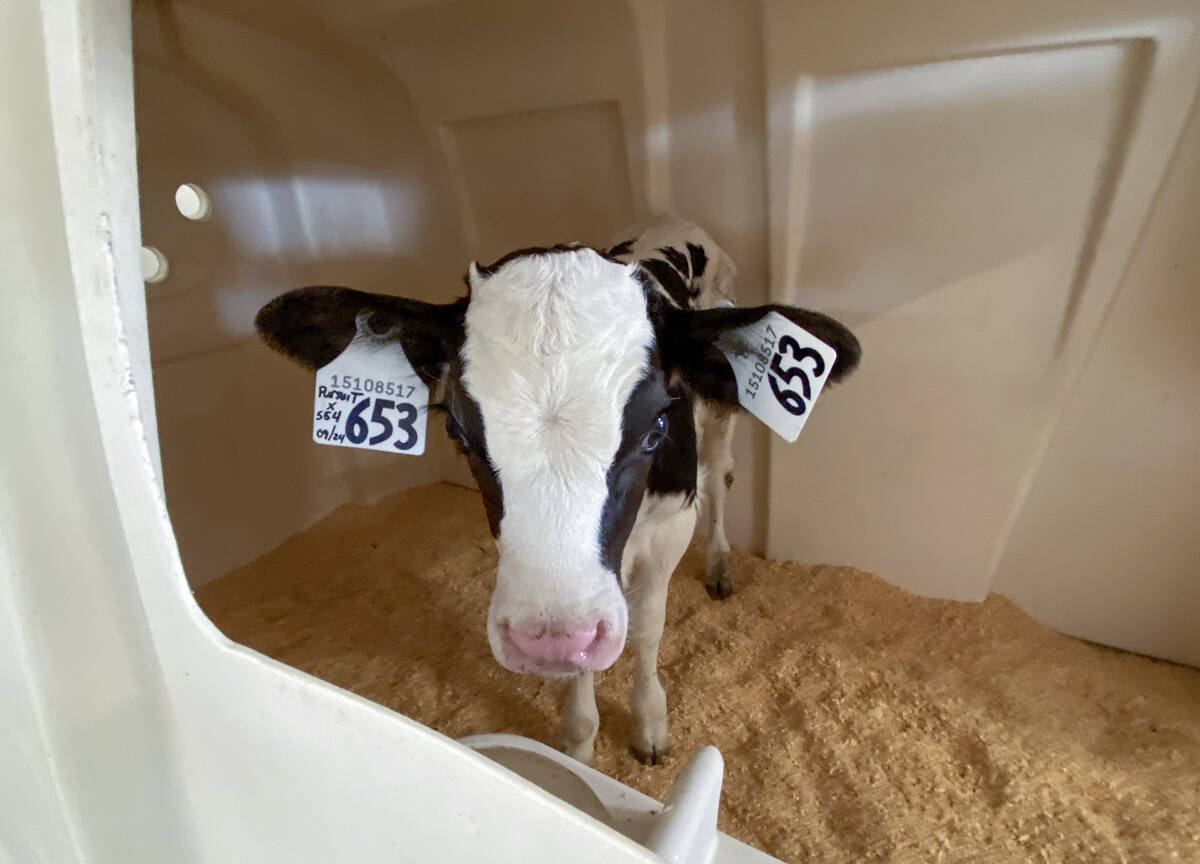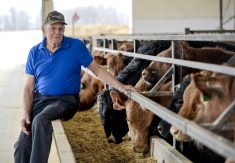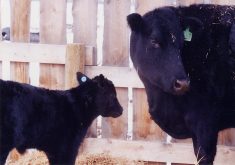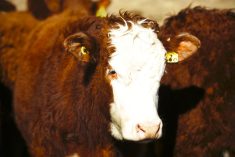In May 2000, on Walkerton’s southernmost edge along Wallace Street, Well 5 stood hidden by overgrown brush within a small group of trees.
The innocuous, square, pale brick building would become the focal point of a years-long inquiry after E. coli O157:H7 contaminated Walkerton’s water supply, killing seven people and affecting thousands more.
Fresh off a 13-year stint with Ontario’s Ministry of Agriculture and Food (now Agriculture, Food and Agribusiness), Mike McMorris had barely settled in as the Ontario Cattlemen Association’s (OCA, now Beef Farmers of Ontario) assistant manager when Walkerton happened.
Read Also

Lactanet turns methane expertise into business opportunity
Lactanet’s new fee-for-service breeding tool initiative to reduce greenhouse gas emissions in Canadian and Swiss Holstein herds will launch in April 2026.
“Very early on, there was some indication that Well 5 was the well of concern,” said McMorris. “It was close to Dave Biesenthal’s farm, so Stan Eby (OCA president) and Kelly Daynard, who was communications manager, and I met at Dave’s.’”
McMorris recalled Biesenthal sharing how they purchased the farm on the outskirts of town, started a small Limousine herd, built his equine veterinary practice, and became early adopters of the relatively new Environmental Farm Plan. OCA crafted a talking points document for Biesenthal for when the media called.
Biesenthal and his wife, Carolyn, were accused of water contamination due to poor farm management practices. However, they didn’t know until their daughter, Laryssa, called saying the media reported their farm was the source of the E. coli contamination.

“We had an inkling something was going to happen, but it just exploded that day. That’s the day our lives changed,” said Dr. Biesenthal. “We have a lane that’s a quarter of a mile long. We had to put tractors at the end of the lane to keep people from coming in. The media were there, like bees to honey, or bears to honey, maybe.”
When the press came knocking, McMorris told Biesenthal to lean on the OCA document, which laid out the facts of their operation. Days later, Biesenthal called him and confessed he hadn’t used them.
“He said, ‘I assumed there was somebody with a horse that needed veterinary assistance, so I walked in (to the office), they sat down, and the first thing he said was, ‘What’s it feel like to kill seven people?’ And he (Biesenthal) said, ‘I didn’t use your story.’”
Two fortuitous events helped shore up Biesenthal’s defence.
First, proactive leadership, anticipating scrutiny of agriculture’s environmental impact, established the Environmental Farm Coalition and developed the Environmental Farm Plan (EFP), enabling producers to document every farm action in minute detail.
Biesenthal had no idea how critical the EFP would be in exonerating him and his family from wrongdoing in the Walkerton tragedy.
“We might have been a test case for the value of an Environmental Farm Plan (EFP) when you put it in perspective,” admits Biesenthal. “It was like a gold mine for us because we could do everything we wanted to do and keep track of it.”
The Walkerton Inquiry ultimately exonerated them because their EFP confirmed that they’d adhered to all best practices for manure handling.
The second was engaging academic experts to provide information to the media in place of agricultural associations.
“It took away that perception of bias in communications and put some facts on the table,” McMorris explained.
In the lead-up to the Walkerton Inquiry, led by Ontario Chief Justice Dennis O’Connor, Michael Goss, a professor at the University of Guelph’s department of Land Resources Science specializing in agriculture’s environmental impact, analyzed the farm’s EFP with a fine-tooth comb.
“Mike phoned me up and said, ‘Dave, this is a clean bill of health,’” said Biesenthal. “They weren’t protecting us. They were just telling the truth.”
Community divided
Throughout the crisis and subsequent Inquiry, the community remained divided between those who believed the couple were innocent of wrongdoing and those who thought they were guilty.
“We thought it was just incompetence, right? The well wasn’t managed. We did nothing wrong,” Carolyn explained. “To this day, there are still people that say, ‘I don’t know, maybe you guys, it wasn’t a good place to be farming.’”
With more urban dwellers moving into rural areas, McMorris said it’s less about bridging the urban-rural divide and more about making agricultural education accessible.
“You need to have information available in bite-sized pieces that builds confidence and trust. Is it agriculture’s role to educate urban people moving into the area?” he questioned. “That municipality should be talking about water in the municipality. The province should be talking about water in the province. If you take the rural-urban approach, it’s setting up as a “them” and “us”, when it really should be “us.”
As overwhelming as having all levels of government and scientists descend upon the farm to determine where the E. coli originated from, Biesenthal willingly agreed because he needed to know if it was them.
“I don’t want anybody else to ever have to go through this again because you shouldn’t be woke up, and your whole life’s changed like that,” he said. “It doesn’t seem right.”
Biesenthal advises other producers under scrutiny to remain calm, invite officials to investigate, and be transparent in determining whether the issue is on your farm.
“Just let people know what’s going on. That’s basically what we did here,” he said.
Reminding themselves they had a comprehensive EFP as proof of their diligent farm practices and seeking support from fellow producers and friends helped maintain their sanity while living under a cloud of suspicion.
Watching Orng helicopters airlift patients over their farm toward London carried another emotional toll. Carolyn recalls, “It was like M*A*S*H.”
“The fact that people we knew had passed away, and friends of ours’ parents had passed away,” agreed Dr. Biesenthal. “That’s hard to handle when you’re being blamed for everything.”
The Inquiry concluded that a 134 mm rainfall, inadequate chlorination of Well 5, falsified test results, insufficient government oversight, and a lack of water treatment operator knowledge culminated in the devastating gastrointestinal illness that swept through the community.
Once again, instead of municipal communications, Dr. Biesenthal learned through the media that a non-functional chlorinator at Well 5 was the primary culprit.
Walkerton Public Utilities Commission operators and brothers Stan and Frank Koebel pleaded guilty to a common nuisance charge related to the contamination on Dec. 20, 2004, receiving a year in jail and nine months of house arrest, respectively.
Even now, Dr. Biesenthal refuses to “throw stones” at the Koebel brothers.
“I don’t blame them. Well, I blame them, but I blame the system, not just them,” he explained. “I think the public system really messed up in this thing.”
He feels that the lack of adequate water management training or government oversight, especially after multiple positive readings in the years before the water crisis, was one of many contributing factors that culminated in the disaster.
“It hurts. It still hurts. You never forget,” said Carolyn Biesenthal. “As one of the local councillors said, ‘Anybody that lived through the Walkerton crisis or was sick, you don’t forget.’ You’ll never forget, but you have to look ahead.”















